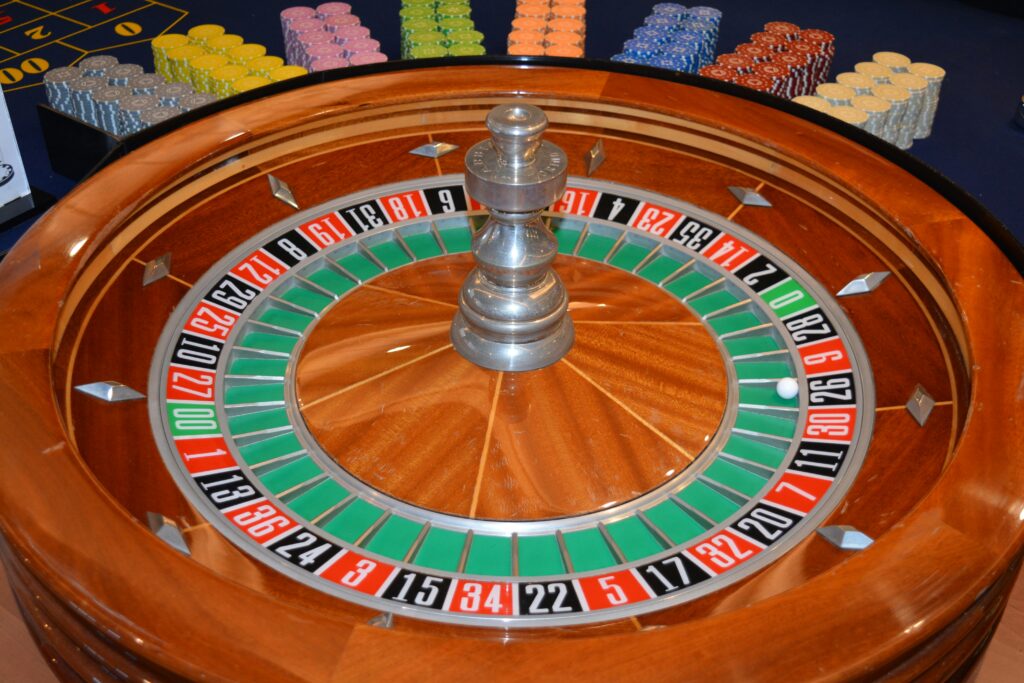Why Control Matters
At first, it feels harmless. A few rounds, a small bet, a quick break from routine. But this is exactly where the line between entertainment and risk begins to blur. Gambling environments—especially digital ones—are designed to be immersive. There’s sound, motion, instant feedback. It pulls you in and keeps you there.
The psychology behind it? Dopamine. The same brain chemical that fires off when we win also surges with the thrill of almost winning. That near-miss. The bonus round. The promise of one more chance. Time and limits fade into the background. That’s what makes it fun—and what makes it dangerous.
When you lose track of how long you’ve been playing or how much you’ve spent, you’re in red flag territory. Quick signs that you’re tipping into unhealthy behaviors include ignoring responsibilities, chasing losses, lying about your play time, or feeling restless when you step away.
Awareness is the first layer of defense. Recognize that the game is built to keep you hooked. When you know how it works, you know how to step back before the line disappears completely.
Know Your Triggers
Overplaying doesn’t just happen. There’s usually something behind it—a mental nudge or emotional pull that pushes you past your limits. Stress is a big one. After a tough day, the noise of the world feels easier to drown out in a game or bet. Boredom hits differently too; it’s not just about killing time, it’s about chasing a hit of excitement. And then there are emotional highs—winning a little might make you feel invincible, like the streak will never end. That kind of rush can be dangerous if you’re not keeping tabs on it.
The trick is learning your own patterns. That starts with noticing. Keep a simple journal or use a habit tracker app. Jot down what you were feeling before and after sessions. Mark days where you went overboard and what led up to it. Over time, you’ll start to see the connections: maybe you play longer when you’re exhausted, or you overspend when you’re celebrating something else. Once you spot the trend, you can start breaking it.
Understanding your triggers doesn’t mean you’ll never feel pulled in again—but it keeps you in the driver’s seat. It turns reaction into strategy.
Set Hard Limits—And Stick to Them
Establishing limits isn’t about restricting your experience—it’s about staying in control. Before you start, know your boundaries and commit to them. Without clear rules, it becomes too easy to let time, money, or emotion take over.
Time Caps vs. Money Caps: Why Both Matter
You need to protect two main currencies: your time and your money. Treat them both with equal importance.
- Time caps help prevent long, unplanned sessions that can affect sleep, relationships, and mental health.
- Money caps serve as a clear stopping point, no matter how the session is going. Set a strict daily, weekly, or monthly budget.
- When both are in place, you build a safety net that reinforces discipline without relying on emotion in the moment.
Digital Tools for Self-Limiting
Most reputable platforms now offer features designed to help you take control. Use them—before you think you need them.
- Session timers remind you when you’ve reached a pre-set limit.
- Spend caps allow you to lock in how much money you can deposit or wager in a certain timeframe.
- Reality checks are notifications that prompt you to reflect on how long you’ve been playing.
- Be proactive, not reactive. Set up these tools during a calm, clear-headed moment.
Build “Stop Systems” into Your Routine
Don’t wait until you’re at your limit to figure out how to stop. Plan for the pause from the beginning.
- Pre-set logoff times—schedule something else post-session to create a firm endpoint.
- Use alarms or calendar reminders to create structure.
- Tell someone your plan—accountability makes it harder to ignore your own rules.
- Write down your limit and keep it visible while playing as a mental anchor.
Setting strong boundaries doesn’t take away your autonomy—it reinforces it. You’re more likely to enjoy the experience when you know you’re in control from start to finish.
Listen to the Signs
There’s a subtle moment when fun turns into something else—something heavier. You’re not smiling anymore. You’re no longer excited to play, just anxious to get back what you lost or stretch a win a little longer. That’s the signal. When the game feels like obligation or survival, it’s time to pause.
Chasing losses is one of the clearest red flags. So is increasing your bets beyond what you planned, hoping it’ll fix things. Lying about your play to people you trust? That’s another sign you’re no longer in control, and that the game is starting to play you.
Taking a break isn’t weakness. It’s the exact opposite. Stepping away when things get cloudy gives you space to reset, to actually enjoy the game again if you come back. It gives you your power back. The goal isn’t to never lose. The goal is to not let the game make decisions for you.
Build a Stronger Support System
Trying to manage gambling urges on your own feels noble—but it usually backfires. Willpower has limits. When the pressure builds, you need people around you who’ll hold the line when you can’t. That starts with getting honest—first with yourself, then with others.
Friends and family are more powerful allies than any app or budget sheet. Let them know what you’re working on and how they can support you. Maybe that’s checking in regularly. Maybe it’s redirecting plans away from temptation. The key is opening up before things hit a wall.
Professional help isn’t just for moments of crisis. Therapists, counselors, and support groups offer nonjudgmental space and solid tools. You won’t be the first or the last person they’ve helped through this. And sometimes hearing, “You’re not alone,” from someone who gets it, makes all the difference.
If you’re not sure where to start, check this resource list: Support Systems and Resources for Problem Gamblers.
Have an Exit Strategy
Quitting cold turkey works for some, but not everyone needs or wants a dramatic exit. Whether you’re stepping away for good or just trying to regain balance, the key is to have a plan—a real one. That includes what you’ll do instead when the urge creeps in.
Start by identifying a few simple, repeatable habits that can fill the time and emotional space gambling used to occupy. Walking, journaling, calling a friend, or blasting through a workout—none of these sound flashy, but they serve a purpose: grounding. The point isn’t distraction for distraction’s sake. It’s to reconnect with your life in real time.
If you feel guilt or anxiety when you step back, that’s normal. You’re not just breaking a habit—you’re stepping out of a cycle that probably filled a need, even if it took more than it gave. Let the guilt pass. Don’t feed it. Instead, focus on what walking away gives you: clarity, money in your account, and the space to be present.
Finally, know the difference between a clean break and a conscious pause. The first is a permanent boundary. The second is you checking in with yourself. Both are valid. Just make sure they’re your call—not the game’s.
Respect the Reality
Let’s get clear: the odds are not on your side. Casinos—whether digital or in-person—are designed to take more than they give. That’s their business model. The house edge isn’t some myth or minor detail—it’s the built-in advantage that slowly, inevitably tilts results in their favor over time. This isn’t bad luck; it’s math.
Understanding that reality helps you stop chasing something that was never promised. You might win small. Sometimes big. But keep going long enough, and the trend turns one way: toward loss. That’s not a moral failing. It’s how the system works.
So, stopping isn’t a sign of weakness or defeat. It’s a power move. It’s calling time before things get tilted beyond your control. Knowing when to walk away isn’t quitting—it’s choosing to keep what you have. It’s a different kind of win: one built on awareness, not adrenaline.
Final Thoughts
Control isn’t a heroic act of willpower. It’s a habit. A rhythm. You build it the same way you build any skill—by doing it again and again, not by muscling through a single moment or panic-setting limits after things have slid off track.
This isn’t necessarily about walking away for good. If you want to, that’s your call. But for most people, staying in control means staying sharp—recognizing when something feels off and adjusting without the drama. It’s about giving yourself the option to stop, before the decision gets made for you.
The choice to stop has to be a real choice. You make it easier by practicing it under good conditions. Not out of guilt, fear, or panic—but because you’re choosing how the story goes. That’s what control actually is.



